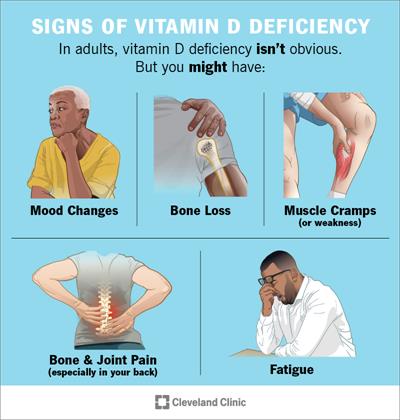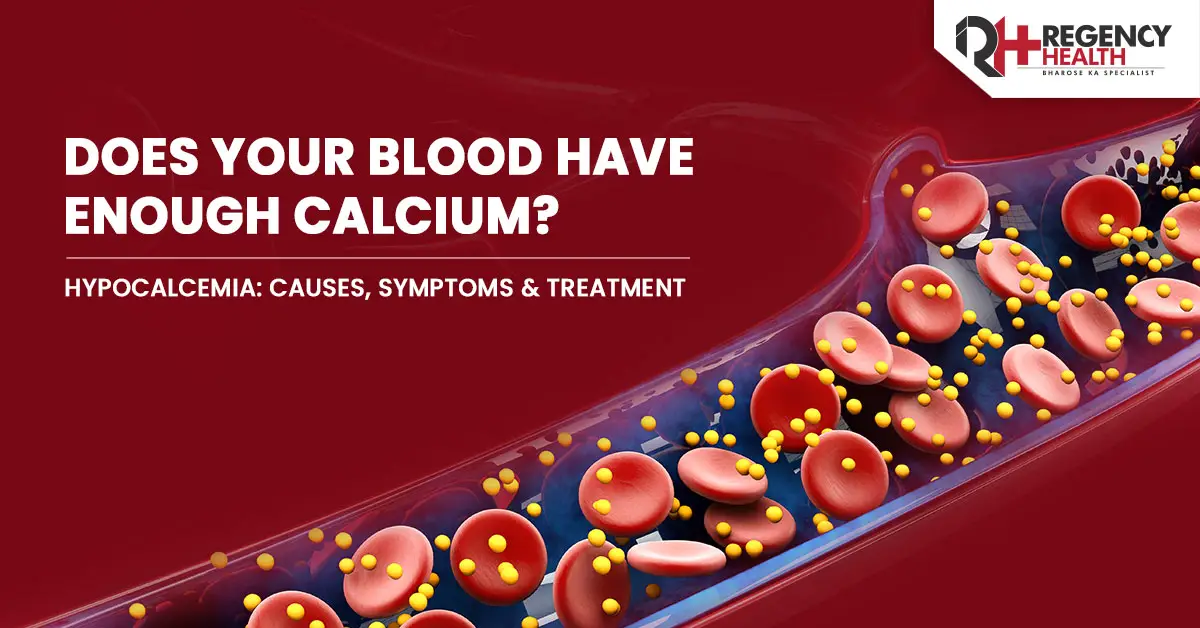Causes, symptoms, and treatment for calcium deficiency include problems with the parathyroid glands, diet, kidney disorders, or certain medications. Symptoms of low calcium levels may consist of dry, scaly skin, brittle nails, coarse hair, and muscle cramps in the back and legs.
Treatment typically involves adding more calcium to the diet, but it is essential to consult a doctor before taking calcium supplements to avoid potential complications such as kidney stones. If left untreated, calcium deficiency can lead to complications such as eye damage, an abnormal heartbeat, and osteoporosis.
Once calcium levels are back to normal, the symptoms of hypocalcemia usually subside.

Causes Of Calcium Deficiency
Calcium deficiency occurs when the body does not get enough of this essential mineral. Several factors can contribute to calcium deficiency, including:
Role Of Parathyroid Glands
The parathyroid glands play a crucial role in maintaining calcium levels. These small glands are located in the neck and produce parathyroid hormone (PTH), which helps regulate calcium balance. A problem with the parathyroid glands, such as dysfunction or removal during surgery, can lead to low calcium levels.
Dietary Factors
The foods we eat play a significant role in our calcium intake. A diet low in calcium-rich foods can contribute to calcium deficiency. Some individuals may have specific dietary restrictions or preferences that limit their calcium intake. Additionally, lifestyle choices, such as excessive alcohol or caffeine consumption, can interfere with calcium absorption.
To promote sufficient calcium intake, prioritize foods high in calcium, such as dairy products, leafy greens, and fortified cereals. It may also be beneficial to seek advice from a healthcare professional or registered dietitian to ensure adequate calcium intake.
Kidney Disorders And Medications
Kidney disorders can affect how our bodies handle calcium. Optimal kidney function is necessary for activating vitamin D, which is crucial for calcium absorption. Certain medications, such as diuretics or antacids containing aluminum, can also interfere with calcium absorption or increase calcium excretion, leading to deficiency.
If you have any kidney-related health issues or are taking medications that may affect calcium levels, it is essential to consult with your healthcare provider for appropriate management strategies.
In conclusion, calcium deficiency can be caused by various factors, including problems with the parathyroid glands, dietary factors, kidney disorders, and certain medications. Understanding these causes can help individuals take appropriate measures to prevent or treat calcium deficiency.

Symptoms Of Calcium Deficiency
Causes, Symptoms And Treatment of Calcium Deficiency can result in dry skin, brittle nails, coarse hair, and muscle cramps. Treating calcium deficiency typically involves adding more calcium to the diet. Avoid self-treating with excess calcium supplements to prevent kidney stones.
A calcium deficiency in the body can lead to various symptoms that may affect your overall health and well-being. Recognizing these symptoms is crucial to identifying and addressing calcium deficiency promptly.
Dry, Scaly Skin And Brittle Nails
One common symptom of calcium deficiency is dry, scaly skin and brittle nails. When calcium levels are low for extended periods, it can result in skin dryness, leading to a rough, scaly texture. Additionally, your nails may become weak, thin, and prone to breaking easily. Maintaining adequate calcium levels can help improve skin and nail health.
Muscle Cramps In the back and legs
Another symptom that may indicate calcium deficiency is muscle cramps, particularly in the back and legs. Low calcium levels can cause muscles to contract and spasm, leading to discomfort and pain. If you frequently experience muscle cramps in these areas, it could be a sign of a calcium deficiency that needs attention.
Complications: Eye Damage, Abnormal Heartbeat, Osteoporosis
Untreated calcium deficiency can lead to various complications that may have long-term effects on your health. These can include eye damage, an abnormal heartbeat, and osteoporosis. Proper calcium levels are essential for maintaining healthy eyesight, a normal heart rhythm, and strong bones.
In conclusion, recognizing and addressing the symptoms of calcium deficiency is crucial to maintaining overall health. Suppose you experience dry, scaly skin, brittle nails, muscle cramps in the back and legs, or other related symptoms. In that case, it’s essential to consult a healthcare professional to identify the underlying cause and develop an appropriate treatment plan.
Treatment For Calcium Deficiency
Calcium deficiency can harm your health, but the good news is that it is usually easy to treat. Several treatment options are available to replenish your calcium levels and alleviate symptoms. This section will explore the different treatment methods for calcium deficiency.
Adding Calcium To the Diet
One of the most effective ways to increase calcium levels is by adding calcium-rich foods to your diet. Incorporating dairy products such as milk, yogurt, and cheese is an excellent way to boost calcium intake. Other sources of calcium include leafy greens like spinach and kale, tofu, almonds, and sardines.
Remember to include these foods in your daily meals and strive for a balanced diet. You can also consult a registered dietitian to help create a meal plan tailored to your calcium requirements.
Caution With Calcium Supplements
While calcium supplements may seem like a quick fix, exercising caution when taking them is essential. It is always best to consult with your doctor before starting any supplements, as excessive calcium intake can lead to kidney problems, such as the formation of kidney stones.
If your doctor determines calcium supplements are necessary, follow the recommended dosage. Taking more than the prescribed amount can do more harm than good. Additionally, choosing high-quality supplements from reputable sources is crucial to ensuring their effectiveness.
Prescription Of Calcium And Vitamin D Tablets
Sometimes, your doctor may prescribe calcium and vitamin D tablets to address your calcium deficiency. These tablets are designed to supplement your dietary intake and help raise your calcium levels to a normal range. Combining calcium and vitamin D is essential for optimal calcium absorption and utilization in the body.
It is essential to follow your doctor’s instructions regarding the dosage and timing of these tablets. Regularly monitoring your calcium levels is crucial to ensuring the prescribed treatment is effective.
In conclusion, treating calcium deficiency involves incorporating calcium-rich foods into your diet, being cautious with calcium supplements, and potentially taking prescribed calcium and vitamin D tablets. Remember, maintaining optimal calcium levels is vital for overall health and well-being.

Frequently Asked Questions On Calcium Deficiency – Causes, Symptoms And Treatment
What Is The Most Common Cause Of Low Calcium?
The most common cause of low calcium is a problem with the parathyroid glands, diet, kidney disorders, or certain medications.
What Happens When Calcium Is Low In Body?
Low calcium in the body can lead to dry skin, brittle nails, coarse hair, and muscle cramps. It is essential to treat calcium deficiency by adding more calcium to your diet but avoid taking excessive supplements without a doctor’s approval.
What Is The Fastest Way To Cure Calcium Deficiency?
Adding more calcium to your diet is the fastest way to cure calcium deficiency. Avoid taking excessive calcium supplements without your doctor’s approval to prevent kidney stones.
What Is The Best Thing For Low Calcium Levels?
The best thing for low calcium levels is to take prescribed calcium and vitamin D tablets and to eat foods high in calcium. Avoid excessive calcium supplements without consulting a doctor to prevent complications like kidney stones.
Conclusion
Calcium deficiency can have various causes and presents with a range of symptoms. It is essential to address this issue promptly to prevent complications and maintain overall health. Treatment typically involves increasing calcium intake through diet and, in some cases, supplements prescribed by a healthcare professional.
However, it is crucial to avoid self-treatment with excessive calcium supplements without medical advice. Individuals can effectively manage calcium deficiency and promote their well-being by understanding the causes, recognizing the symptoms, and seeking appropriate treatment.


